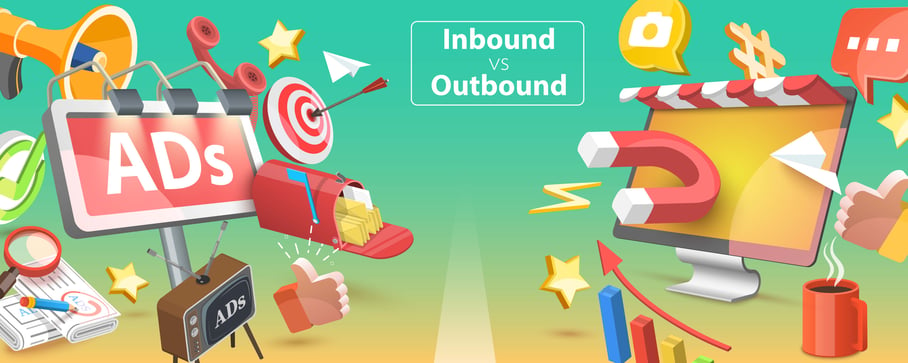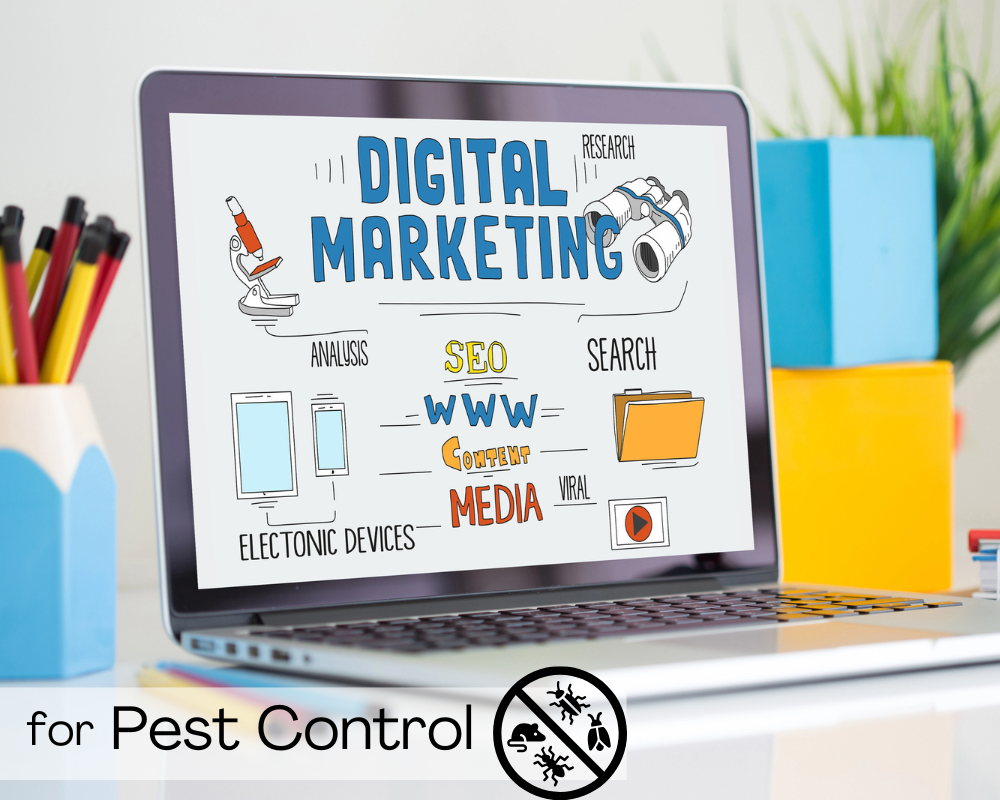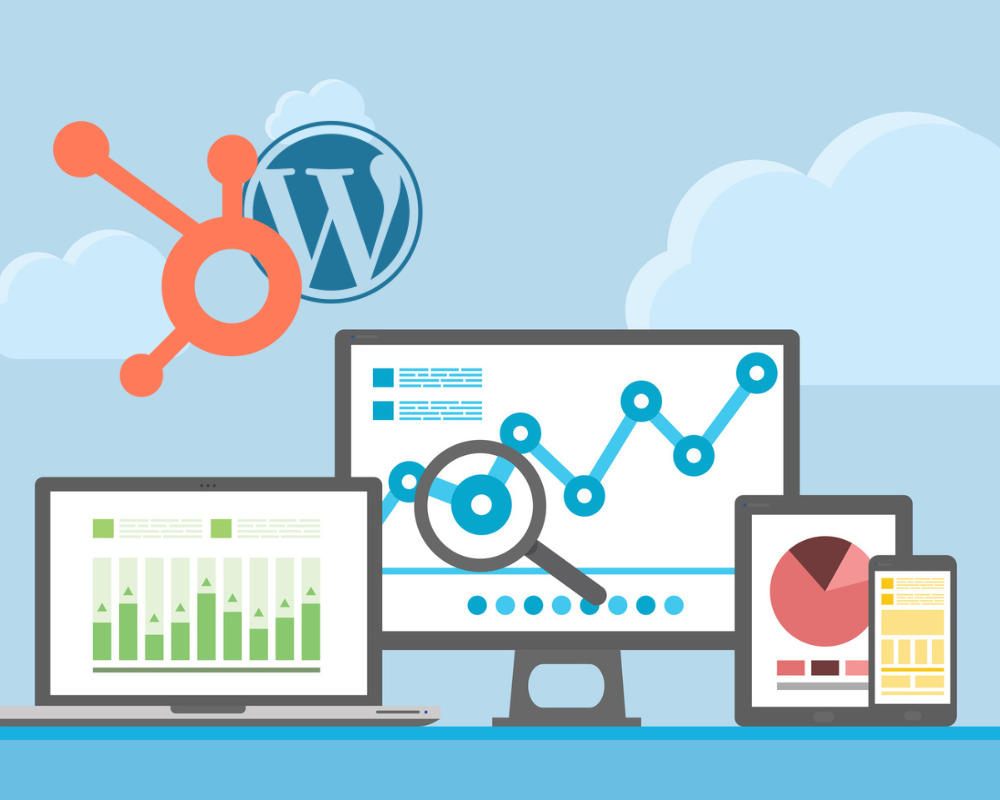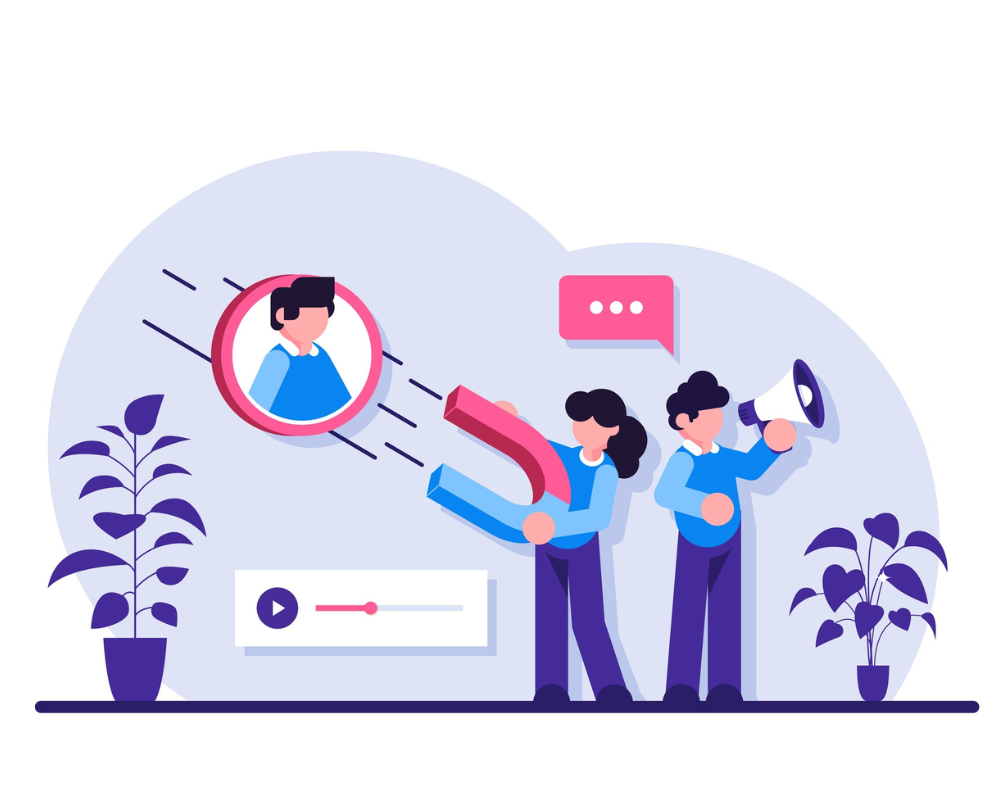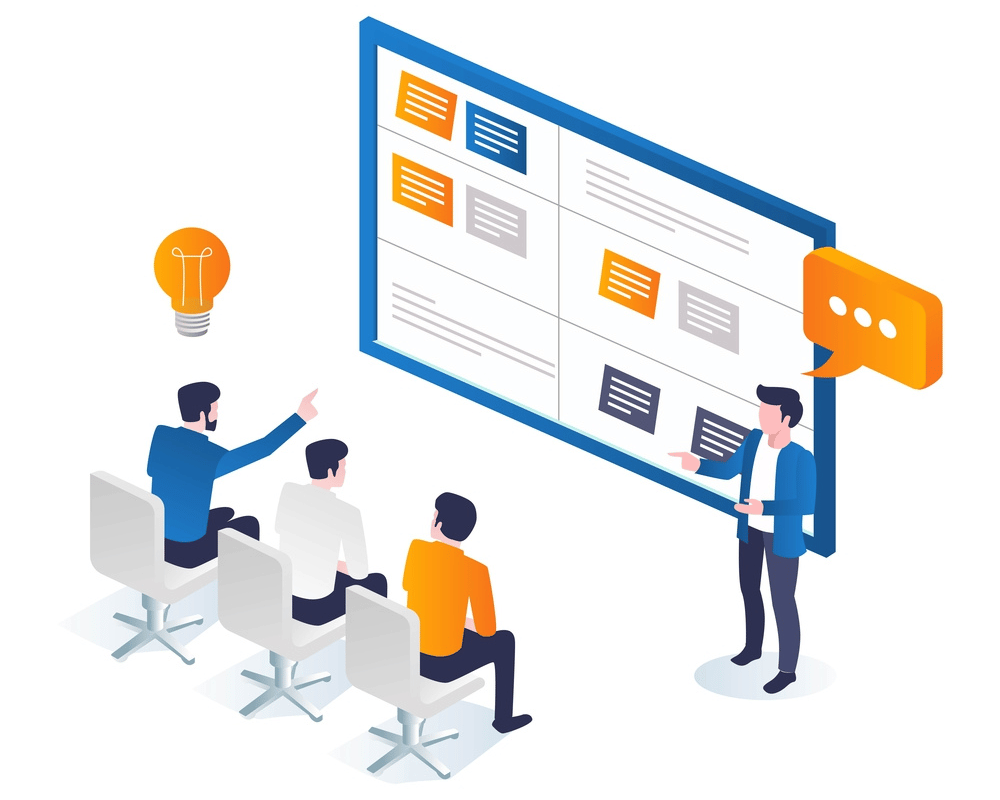We’re so excited to share some great news—WorldLight Media has been nominated for the prestigious People's Choice Award in the Fresno Bee 2025 Best in Central California contest!
Inbound Marketing
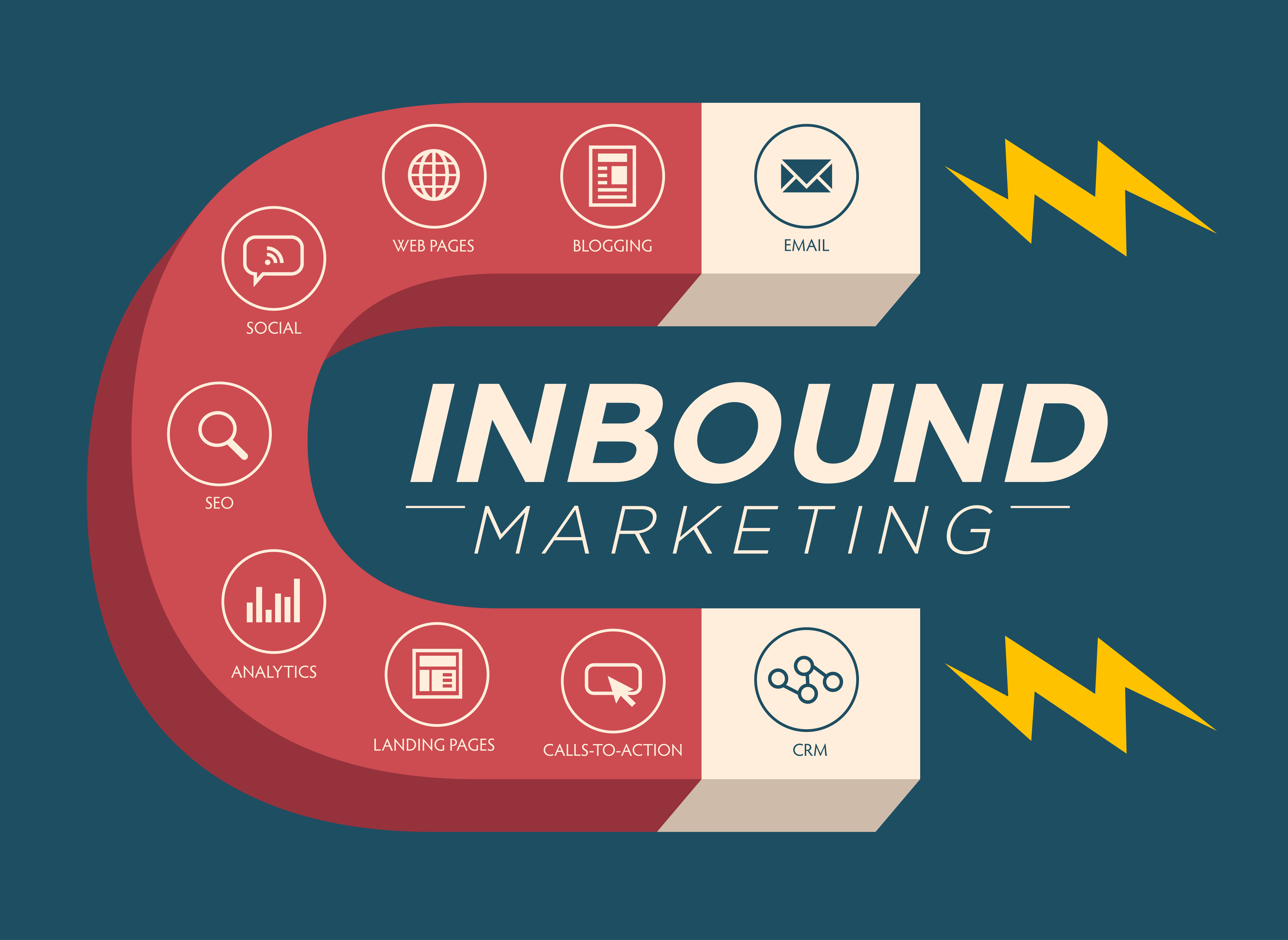
The Internet has dramatically transformed the way consumers shop for products and services. As a result, an entirely new form of marketing has emerged: Inbound Marketing. But what is it, exactly? Who needs it? Why does it matter? And can it help your company grow? Let's find out.
Frequently Asked Questions
Click on the link below to jump to your inbound Marketing Question
Why is inbound marketing so popular?
How does inbound marketing work?
What does inbound success look like?
What are examples of inbound marketing?
What is an inbound marketing strategy?
What should be included in an inbound marketing strategy?
Which Elements of an Inbound Marketing Strategy Are the Most Effective?
What is the difference between inbound and outbound marketing?
How much does an inbound marketing agency cost?
Who should use inbound marketing?
Who should I hire to do my inbound marketing?
What skills does an inbound marketer have?
How do you generate inbound leads?
What are some recommended tools for inbound marketing?
How can email be used for inbound marketing?
What is inbound marketing?
Think of it as a giant magnet.
Inbound Marketing is a strategy that focuses on helping customers find a business instead of the business going out to find the customers. This is accomplished by showing relevant content in all the places where a potential customer might be looking online such as on search engines, blogs, or social media. Which means no more cold calls.
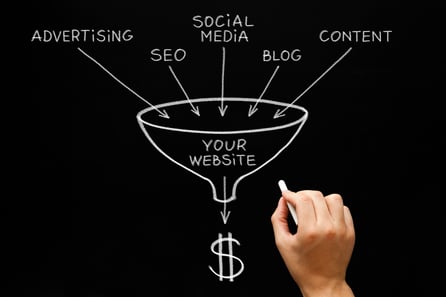
Here are some of the outcomes companies can achieve with an inbound marketing campaign:
- Brand awareness
- Lower marketing costs
- Better overall company growth
- Increased qualified leads
- Improved customer relationships
- Stronger company brand awareness
- Unfair competitive advantage
To learn more about what Inbound Marketing is and how it works, check out this blog post.
Why is inbound marketing so popular?
"Inbound Marketing yields 3 times more leads per dollar than traditional methods." - KAPOST
About 70% of marketers use inbound marketing. The main reason why so many marketing teams feel that it's so important is that it is both effective and cost-effective.

Leads generated by Inbound marketing methods convert at a higher rate, and they cost 62% less than outbound/traditional leads.
To put it succinctly, successful inbound marketing has proven to be a low-cost approach to:
- Top search engine ranking
- Driving more website traffic
- Generating better leads through your website
- Nurturing qualified leads to sales
- Amazing your customers, yielding more referrals, higher retention rates, and long-term relationships with your customers.
How does inbound marketing work?
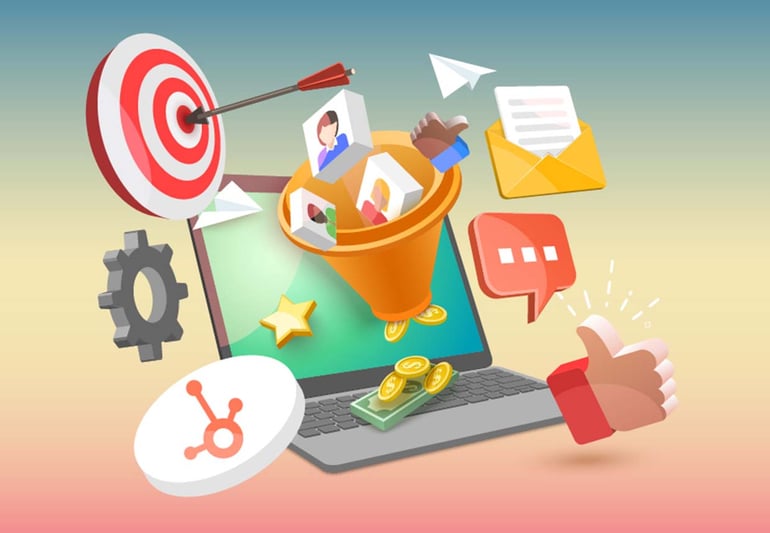
Using your website as the central hub, the inbound marketing methodology works by converting traffic into leads or online sales. But it doesn't stop there. It is built on continuous improvement of itself and long-term customer success. All of this takes place by way of an optimized conversion path (also known as a digital marketing funnel) which has four stages:
- Drive: Bring traffic to your website by means of search engine optimization, social media marketing, or other websites
- Engage: Show the users you can help them and earn their trust with truly great content.
- Convert: Inspire the users to take a call-to-action and accept your offer by completing a transaction such as a purchase or filling out an online form.
- Amaze: Deliver a blissful customer experience after the transaction.
What does inbound success look like?
The keys to inbound marketing success are measurement and long-term commitment. Inbound Marketing is a long-term strategy, and it requires close monitoring and analysis of your user data to see what is working and how the customer journey can be improved in a way that leads to more conversions. Over time, your marketing performance gets more efficient and more cost-effective.

Inbound marketing generally involves the following components:
- Having detailed knowledge about the buyer, usually organized in a buyer profile, or buyer persona.
- Deep understanding of the Buyer Journey, and how to engage buyers at every stage of their journey.
- Creation of extremely valuable content and high-quality content that helps the user make informed decisions.
- Building a User Experience(UX) that is personalized for the user.
- An optimized conversion path to attract your target audience and convert them into leads using Landing Pages.
- A Customer Relationship Management (CRM) tool.
- A system to track success and measure real-time performance.
- A process to review results and constantly improve your products and services.
The goal of your inbound marketing campaign is to have such great content that anyone who is looking for your product or service can easily find you, trust you, buy from you, and then enthusiastically promote you.
What are examples of inbound marketing?
Understanding the marketing techniques used
There are many activities you can do when it comes to marketing. But how do you know which activities are inbound and which activities are outbound? Below we provide a few examples of both to clear things up for you.
Inbound marketing examples:
- A marketing email or newsletter that you have asked to receive
- An informative blog post or article
- A social media profile that entertains you on LinkedIn
- A social media influencer acts as a promoter for a product or service
- A search engine result that is exactly the type of content you are looking for
- A video channel or podcast you subscribe to
- A webinar that you sign up for
- An ad you see on a search engine, related to what you are searching for
- An eBook that you download

Outbound marketing examples:
- A door-to-door salesperson
- A telemarketer who calls your house
- An ad on TV
- A billboard on the side of the highway
- An ad that arrives in your mailbox.
- A booth at a trade show
- A seminar
- An ad you see on a news website
- A spam email
Marketing tools that can be used in both inbound and outbound marketing:
- Infographics either online or in print
- Whitepapers that teach you about a subject
- In-depth content creation on a subject related to a business
What is an inbound marketing strategy?
The Building Blocks of Inbound
Inbound Marketing is achieved by using a combination of several different skills and marketing tools and executing them in a specific order. An inbound marketing strategy typically includes the following services and phases:
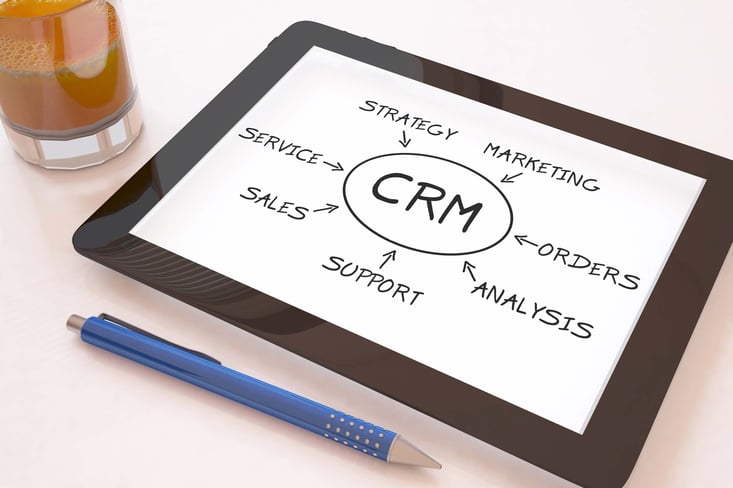
1. Get found online
- Content Strategy
- Content Creation
- High-Quality Content
- Relevant Content
- Website Design
- Blogging
- SEO
- Search Engine Optimization
- Backlinks
- Rankings on Search Engines Results Pages (SERPs)
- Social Media Marketing
- Paid Ads
- Landing Pages
2. Convert and Nurture Leads
- Lead Generation
- Live Chat, Contact Information Forms & CTAs
- Video
- Conversation Rate Optimization
- Email Marketing / Nurture Campaigns
- CRM Setup and Management
- Marketing Automation
- Podcast
3. Measure ROI
- Reporting
- Analysis
- Adapt and Learn
4. Building Trust

- Delivering Value to Returning and New Customers
- Branding & Loyalty
- Understanding Demographics
- Customer Success & Retention
- Surveys and Reviews
Each of the components listed above has several facets and subskills needed in order to reach expert status in any given discipline. Putting all of these together into one cohesive strategy and executing well is not something any single person can do alone. It takes a team of highly talented individuals to perform all of the various roles and functions that need to happen. For this reason, most of the companies that employ inbound marketing strategies are medium to large size businesses who are not afraid to invest heavily in marketing to ensure growth.
What should be included in an inbound marketing strategy?
While each business’s inbound marketing strategy will differ from the next, there are some core “needs” that every business should be aware of when they are creating their inbound marketing strategy. These needs are things that you shouldn’t skip even though you might not think they’re relevant or necessary for your company.
The first thing you absolutely need to include in your inbound marketing plan is a blog on your website. There are very few businesses that wouldn’t benefit from having a blog on their website. Blogs are a great way to share information about your business and industry, establish yourself as an authority on the topics related to your industry, and to provide answers to questions your customers may have. A blog that answers questions your target market is asking can build trust with potential new customers and can ultimately generate leads for your business.
Social media is another area where there are very few businesses that wouldn’t receive the benefits of having a social media account. It’s a great tool to have in your pocket for building brand awareness, marketing your products and services, and for building relationships with your customers.
Which Elements of an Inbound Marketing Strategy Are the Most Effective?
Like with anything, there are some inbound marketing strategies that are more effective than others. While that doesn’t mean that you shouldn’t use the less effective strategies, it means that you should put the majority of your marketing efforts into the strategies that will give you the biggest return on your investment. But, which strategies are best for inbound marketing?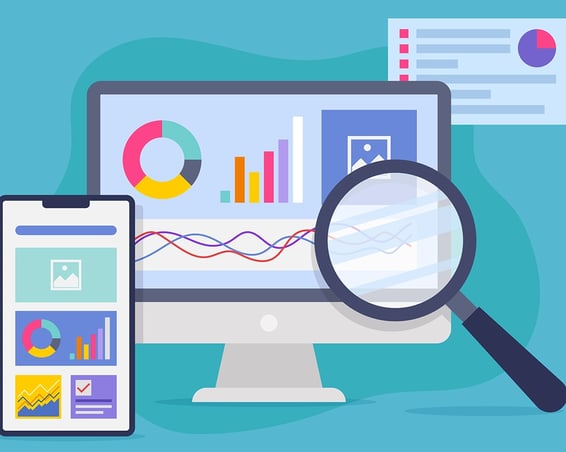
Probably the number one most important element is search engine marketing (SEM) and search engine optimization (SEO). Search engine marketing is one of the most important things you need to include in your digital marketing strategy. There are over 98,000 Google searches per second, which means that you definitely want to make sure that you’re creating SEO optimized content to help you rank higher on Google.
Pay-per-click (PPC) advertising is another important tool to utilize in your inbound strategy. When done correctly, PPC ads can drastically help your inbound strategy. PPC ads can be especially effective when they are linked to a landing page with clear calls to action to direct yout visitors to make conversions.
What is the difference between inbound and outbound marketing?
The key difference between inbound and outbound is the direction of the customer in relation to the content. Inbound marketing pulls the customers inward to the content, and ultimately, the sales team. Outbound marketing pushes their content outwardly, trying to get you to notice their brand while you are out doing other things. Many internet users find outbound to be annoying, while inbound is thought of as engaging. The reason for this is because, in general, inbound marketers are constantly trying to earn their customers' trust by adding value to their lives in ways that solve problems. Outbound marketers, conversely, are trying to disrupt people's life just long enough to cram a marketing message into their thought process in the hopes that it will lead to a sale.
Both inbound and outbound methods of marketing have their strengths and weaknesses. Since the way people buy and sell products has changed so much in recent years, inbound marketing has become essential for companies to engage their buyers in meaningful ways. Now, thanks to the Internet, buyers are much smarter in their approach to making purchases and tend to conduct online research before buying new products or services. This is why inbound marketing is soaring in popularity, while outbound methods are fading away.
There are so many types of marketing that it can be confusing to know where the lines are drawn. For example, inbound marketing includes aspects of:
- Content Marketing
- Digital Marketing
- Online/Web/Internet Marketing
However, it is not the same as these types of marketing.
To learn more about this topic, click here.
How much does an inbound marketing agency cost?
Costs can start at $2,500 and can be as much as $100,000 per month.
Some inbound agencies will charge you a flat rate, while others will charge you an hourly rate. The best agencies offer Value-Based Pricing because it is the best value for you and is the most fair for both agency and the client.
There are several factors that will impact the cost of an inbound marketing project:
- Size of your company: The larger your company is, the more content it will need to generate to move the needle.
- Size of your market: The more competitive your industry is, the more effort is required to outperform them.
- The complexity of your sales process: If you're selling a pack of gum, your product is not very complex, but if you're selling a robot that manufactures robots, you will require a more sophisticated inbound strategy.
- Depth of your Customer Knowledge: If you don't know much about who your customers are, it will require more effort to discover their buying patterns and habits, which you'll need to know before you make an effective strategy.
- Growth Goals: If you want to move the needle by 20% in one year, it will cost more than if you want to grow by 10% in three years.
For tips on how to set a marketing budget for your specific business, check out:
- How much money should I spend on marketing?
- How do I decide where to spend my marketing dollars?
- How much does web design cost?
- In-House Versus Agency Marketing: Pros & Cons

Is inbound marketing worth it? The same question can be asked of any investment. The answer all depends on the returns you are getting.
Who should use inbound marketing?
Because the way people buy has fundamentally changed, inbound is a core strategy for any business, regardless of size, industry, or location. In fact, today 70% of marketers actively invest in inbound marketing.
In 2012, inbound marketing was a novelty for most companies, much like in 1996 a website was a novelty for most companies. But my how the times have changed.
Inbound works best for the following companies:
- B2B Companies
- Manufacturing Companies
- Online Retailers
- Technology Companies
- Small Businesses
- Medium-Sized Companies
- Large Companies

While it does work better for some than others, it should be noted that any business, any industry, any size can and should use inbound marketing.
Who should I hire to do my inbound marketing?
Choosing an all-star team of talented professionals

As we stated earlier, no single person can possibly be talented in all the various areas that inbound marketing efforts require. Therefore, a team is required. Try to find a team that does inbound marketing all day long, for best results. Some agencies focus only on inbound, and partnering with an agency like this is your best chance at finding the best talent.
HubSpot, the company that coined the term "inbound marketing" and literally wrote the book on it, has a program in place to train and certify agencies in Inbound Marketing. Look for an agency that has been certified by HubSpot, and it's even better if you find one that is a certified HubSpot partner.
Here's a link to WorldLight Media's HubSpot Partner Agency Profile.
The quality of thinking that goes into creating an inbound marketing strategy needs to be very high. There are many in-depth, moving parts and doing it successfully requires a highly intelligent strategist to lead the effort. Find an inbound marketing agency with a brilliant strategist at the helm. This will directly correlate to the success of your marketing efforts.
Once you find an inbound marketing agency with sufficient talent, it is important to make sure they are the right fit for you. After all, you will likely be working closely with this team for several years. Make sure they align with your core values and have experience in your industry.
For more information on this topic, check out:
What skills does an inbound marketer have?
An inbound marketing team can have a variety of skills and specialties depending on their focus. Marketing teams are often comprised of people with skills in Google Ads and Analytics, ghost writing, social media, SEO, and web design and development.
Many inbound marketing professionals also have specialized skills in various areas of content creation since content marketing is such a large part of inbound marketing. This can lead marketers to have special skills in things like Search Engine Optimization (SEO), Social Media Optimization (SMO), graphic design, video production and editing, and podcast marketing as part of their repertoire. 
How do you generate inbound leads?
Converting a visitor to a customer starts with an effective customer journey. If your website doesn’t have clear instructions on how to purchase a product or service from you, it’s less likely that it will start generating leads and conversions. You want to make sure that it’s clear from the moment someone clicks on to your site that they know who you are, what you offer, and how to receive that offer.
If you’re trying to generate leads outside of your website, a great strategy is to offer a personalized experience for your customers. Personalization within your brand, in your email marketing, and in your advertising is the key to winning more outbound leads and turning more prospects into paying customers. When you create a personalized experience for your customers, they are able to develop a deeper connection with your brand and are more likely to remain a loyal customer.
Another great way to generate more inbound leads is to use automation in your marketing. Automations not only make your job easier, but they also keep your business active with your customers. Some automations, like automated drip campaigns may require a little more work in the beginning, but in the long run, they are worth the time and effort.
What are some recommended tools for inbound marketing?
When it comes to content inbound marketing, there are several recommended tools that can help boost your strategy and achieve better results. These tools fall into categories such as email marketing, social media management, automation, and content optimization. Here are a few notable recommendations:
Note: For all the categories of tools listed below HubSpot offers and all-in-one Solution, which we highly recommend. Tailored for inbound marketing, sales, and customer service, HubSpot offers a suite of tools to create, optimize, promote content, build lead generation funnels, automate lead nurturing, and report on performance. Below are some other alternatives as well.
1. Email Marketing Tools:
- MailChimp: An excellent tool for beginners and experts alike, MailChimp offers features like email template development, list management, segmentation, and campaign tracking.
- Klaviyo: Designed for personalizing emails and SMS, Klaviyo helps scale your email operations by leveraging user behavior and preferences for segmentation.
2. Social Media Management Tools:
- Hootsuite: A comprehensive social media management tool that simplifies marketing activities, speeds up sales processes, and streamlines customer service.
- Buffer: Combining personalization and automation, Buffer allows you to schedule bulk updates across major social media networks and easily import content from blogs.
3. Automation Tools:
- Zapier: A powerful automation tool that integrates with over 4,000 apps, Zapier enables seamless workflows by automating tasks and processes.
4. Content Optimization Tools:
- Ahrefs: Specifically designed to improve content creation, Ahrefs focuses on SEO and provides tools for keyword and backlink analysis as well as content analysis features.
- Feedly: This software uses an AI engine to help you track relevant content across the internet, highlighting important insights from various sources like news sites, blogs, Twitter, and newsletters.
- Grammarly: An invaluable tool for content marketers, Grammarly utilizes AI to identify and correct mistakes in copy, including spelling, grammar, punctuation, clarity, and engagement errors. It helps optimize your content for better search engine ranking.
These are just a few examples of recommended tools for content inbound marketing. Each tool offers unique features and advantages, so it's important to assess your specific needs and goals to determine which ones best suit your strategy.
What are some recommended tools for inbound marketing?
When it comes to content inbound marketing, there are several recommended tools that can help boost your strategy and achieve better results. These tools fall into categories such as email marketing, social media management, automation, and content optimization. Here are a few notable recommendations:
Note: For all the categories of tools listed below HubSpot offers and all-in-one Solution, which we highly recommend. Tailored for inbound marketing, sales, and customer service, HubSpot offers a suite of tools to create, optimize, promote content, build lead generation funnels, automate lead nurturing, and report on performance. Below are some other alternatives as well.
1. Email Marketing Tools:
- MailChimp: An excellent tool for beginners and experts alike, MailChimp offers features like email template development, list management, segmentation, and campaign tracking.
- Klaviyo: Designed for personalizing emails and SMS, Klaviyo helps scale your email operations by leveraging user behavior and preferences for segmentation.
2. Social Media Management Tools:
- Hootsuite: A comprehensive social media management tool that simplifies marketing activities, speeds up sales processes, and streamlines customer service.
- Buffer: Combining personalization and automation, Buffer allows you to schedule bulk updates across major social media networks and easily import content from blogs.
3. Automation Tools:
- Zapier: A powerful automation tool that integrates with over 4,000 apps, Zapier enables seamless workflows by automating tasks and processes.
4. Content Optimization Tools:
- Ahrefs: Specifically designed to improve content creation, Ahrefs focuses on SEO and provides tools for keyword and backlink analysis as well as content analysis features.
- Feedly: This software uses an AI engine to help you track relevant content across the internet, highlighting important insights from various sources like news sites, blogs, Twitter, and newsletters.
- Grammarly: An invaluable tool for content marketers, Grammarly utilizes AI to identify and correct mistakes in copy, including spelling, grammar, punctuation, clarity, and engagement errors. It helps optimize your content for better search engine ranking.
These are just a few examples of recommended tools for content inbound marketing. Each tool offers unique features and advantages, so it's important to assess your specific needs and goals to determine which ones best suit your strategy.





